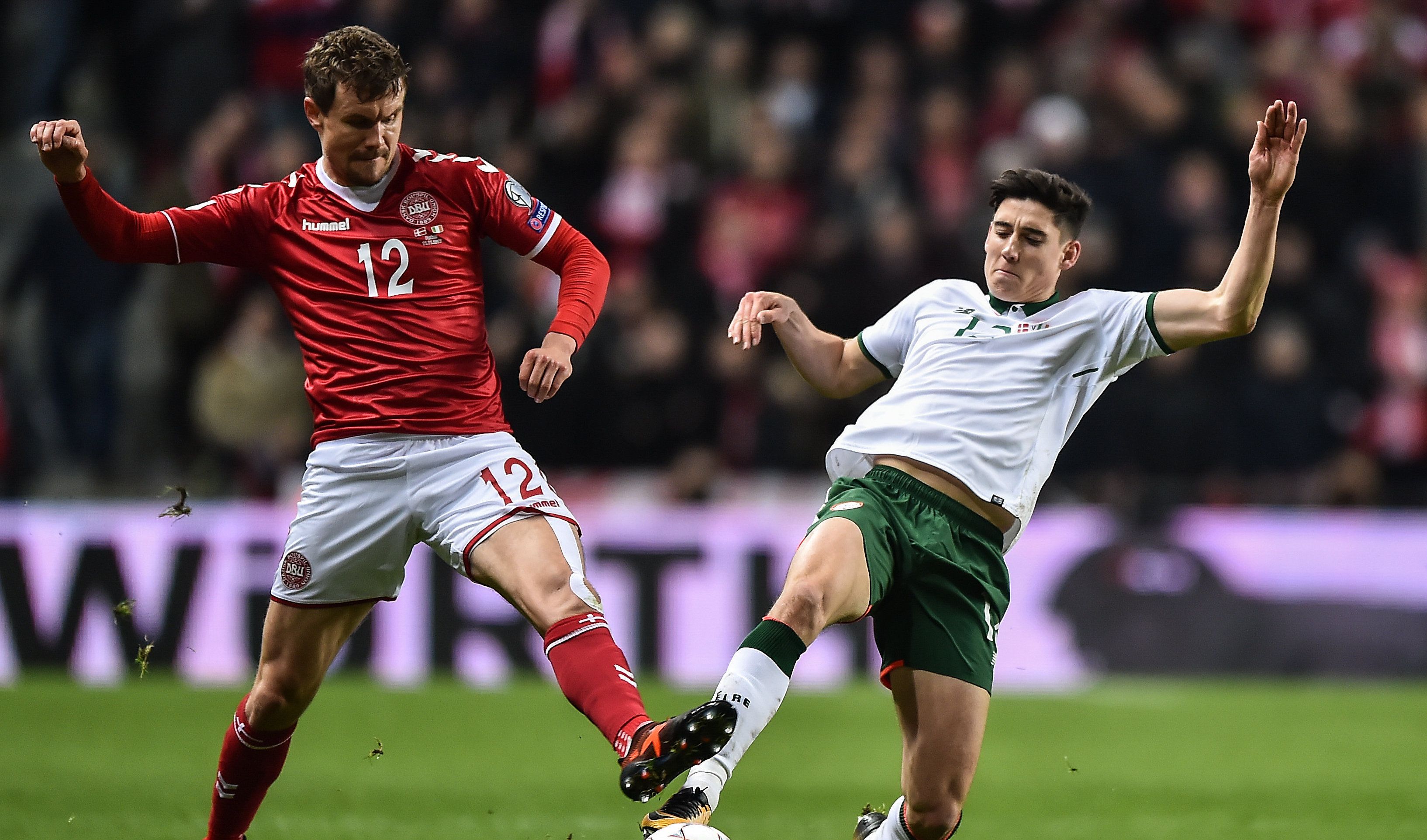

Share
11th November 2017
09:56pm GMT

However, after about 90 seconds, that petered out, things reverted to normal and both sides seemed happy enough with this.
Denmark had the ball which they considered to be an advantage, but that suited Ireland too. It is not just that, like Jose Mourinho, Martin O’Neill might think that the team with the ball is the team who will make a mistake, but there seemed to be something more fundamental involved.
Ireland were not just out to wear Denmark down, they were intent on crushing whatever lingering affection their players might have for football itself.

This was awful, but that often seems to be the point with Ireland. They make it as ugly as they can for as long as they can as a test of endurance, waiting for the point when the hearts of the opposition break.
Ireland will be delighted with how this mission went. They achieved a scoreless draw and while some may be anxious at the absence of an away goal, it will be seen as a small price to pay.The gameplan may be more expansive at the Aviva on Tuesday, but Ireland's fundamental approach won't alter. Denmark will know that they will suffer every minute of the game. The question will be: how much of that can they tolerate?
Because there was more at stake here in Copenhagen, Ireland quickly took a zero tolerance approach to possession.
Denmark had the ball but that was ok with Ireland. It’s not that the ball isn’t Ireland’s friend, it’s more that it’s a neighbour they stopped talking to a long time ago for reasons nobody can quite remember, but both sides are now too stubborn to reconcile.
Ireland shunned the ball, they drove by it when it was standing at a bus stop in the rain, they turned round and went down a different aisle when they saw it in the supermarket. They wanted nothing to do with it. They found cruel and unusual ways to mistreat it. Brady overhit a simple pass to McClean and then, seconds later, McClean launched a ball in the air for no apparent reason when he appeared to be attempting a cross. But the move wasn’t over. McClean chased down the ball and crossed for O’Dowda who, stunned by the improbability of the whole thing, then miscontrolled it. This was Ireland’s version of Pele’s dummy against Uruguay in 1970.
When they did have the ball, they launched it, they hoofed it, they belted it, they found row Z and imagined row Z was somewhere in the Danish half or high above the ground.

The set-piece became Ireland’s primary form of expression so whenever any one was wasted, it seemed like a particularly cruel mistake, like losing privileges in a prison.
It was awful, but that often seems to be the point with Ireland. If it was more pleasing, people might relax and start to enjoy themselves when it is supposed to be a test. As Denmark's Thomas Delaney said afterwards, breaking down Ireland is like 'trying to open a 'can of baked beans with your bare hands'. O'Neill said Ireland will have to be better with the ball on Tuesday. Reintroducing themselves to it would be a start.
Ireland’s team selection with Glenn Whelan left out suggested they had come for a goal, but Whelan has become so ineffective as the holding midfielder that it wasn’t that big a call or such a radical departure.
Ireland had industry and balance but not much else. Callum O’Dowda watched the game go by on the right, running as much as he could, but not doing much more.
Ireland were here to work and support each other but the work got harder after Darren Randolph’s double save gave Denmark the sense that they had found the weakness.
More precisely, the weakness they had identified was vulnerable and Simon Kjaer aimed balls over Christie’s head as often as he could.
One of the first had required saves from Randolph, first from Jens Stryger Larsen and then he parried it to Andreas Cornelius who should have scored but shot too close to Ireland’s goalkeeper.
Denmark should have scored when Ciaran Clark mishit a clearance straight to Christian Eriksen. Eriksen’s shot was saved by Randolph but he couldn’t hold it and it landed perfectly for Pione Sisto but amazingly he put the ball wide.
Ireland had their chances, well they had moments when they arrived in the Danish box and that seemed to be stunning enough that Denmark temporarily froze. Cyrus Christie charged forward in the first half and Kasper Schmeichel saved before Jeff Hendrick went close. Ciaran Clark miskicked in a great position in the second half, but they were content with how the game was going.
Nobody will ever sit down in fifty years’ time, in a year’s time - hell, in a week’s time - and say they want to watch this game again, but that was not the point. If it had become aesthetically pleasing, Ireland would have probably failed.
Now they are on the brink of success. There is nothing to fear from Denmark. Ireland go into Tuesday's game needing a victory to qualify for the World Cup. There will be another 90 minutes at least to endure, but at this stage endurance is the whole point.Explore more on these topics: